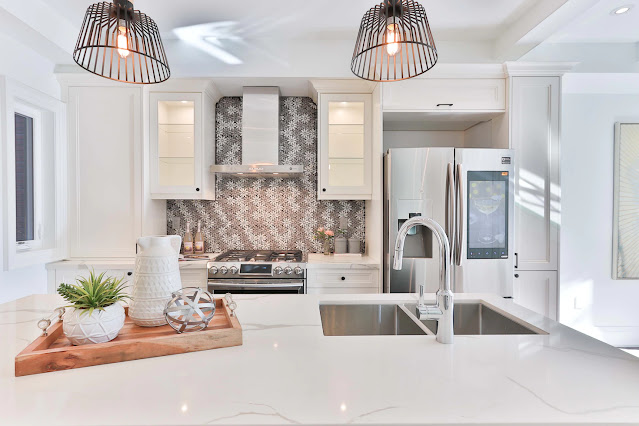1. Watch Your Spending
When you go through the home-buying process, you need every last dollar you can get and don't want to make any unnecessary purchases. Even something as small as buying new furniture could set you back in the buying process. Tracking your expenses can help you understand what you're splurging on and how to get your money back under control. Once you see where it's all going, you'll be able to make a plan to spend less as you go through the home-buying process.
2. Start Cooking at Home
One of the easiest ways to save money is to start eating at home. You don't necessarily need to make extravagant meals at home — even a sandwich or a couple of microwaveable meals can make a difference compared to eating out every night. You'll be able to save more money by buying staples you can create meals around, like meats or other protein sources. Try to make well-rounded meals and you won't even miss dining out.
3. Budget Every Dollar
When every dollar has a job, you'll be less likely to run out of money. You can use a calculator to help you predict where your money will go or you might try to do it independently with pen and paper. Be sure to factor in recurring expenses, like phone bills and student loan payments. When you finish planning out your necessary spending, you may have some money left over to contribute where you want.
4. Pay Down Your Debt
One of the best ways to prepare for buying a home is to look at your debt. It might be the best thing to pay down before you start the process, as it can directly affect the house you get and how easy the process is. You can easily calculate your debt-to-income ratio by taking your total debt over your monthly income, which should give you a percentage. The lower your rate, the more likely you’ll be to secure a loan from a lender.
5. Save for a Rainy Day
When you buy a new home, you'll start to see you have more expenses than you thought. If something breaks, you'll have to repair it yourself — no landlord will cover the fee for you. You'll have to pay for homeowners insurance, property taxes and much more. If your area has a homeowner's association, you'll have to pay regular fees to it, too.
Any extra money you have can go toward these unexpected fees. After you buy the home, you'll be able to float on the cushion you've built up as you work to save more money. If you end up not using all the money, you can have it to treat yourself to something nice after the ordeal of buying a home. Saving money away when you can is a great idea, regardless of the overall goal.
Make Changes for a Better Future
Saving money and decreasing your spending might be difficult at first, but it's an excellent way to prepare yourself for the home-buying process. To avoid being house poor, you should have more money saved away to use during and after the home-buying process. If you stick to your budget and avoid reckless spending, you'll set yourself up for a fruitful future in your new home.
*Collaborative post


0 comments